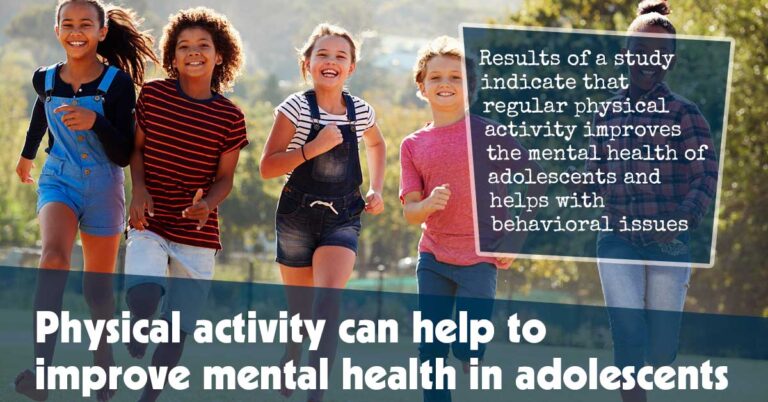Exercise Contributes to Enhanced Mental Health in Adolescents
According to research findings, regular physical activity helps adolescents improve their mental health and address behavioral issues. One such study revealed that engaging in moderate to vigorous physical activity regularly at 11 years old led to better mental health between 11-13 years of age.
Physical activity was associated with reduced hyperactivity and behavioral issues among young individuals, such as stealing, lying, fighting with other kids and losing one’s temper.
Data was analyzed from the Children of the 90s study, in which physical activity measurements for 4755 11-year-olds were taken using various devices.
Devices were utilized to assess moderate physical activity levels, typically defined as cycling or brisk walking, in addition to vigorous physical activities that increased breathing and heart rates such as swimming, jogging and aerobic dancing.
Depressive symptom levels for 11-13 year-old participants and their parents were reported by them and their teachers/parents respectively. Participants’ teachers/parents were then asked about the general behavior and emotional needs of these young individuals.
Analyzing the effect that moderate to vigorous exercise had on mental health and behavior of young individuals was conducted while taking into account socioeconomic status, gender and age factors.
Researchers found a correlation between increasing moderate or intense physical activity levels and reductions in emotional issues and depressive symptoms.
Regular exercise had a small yet notable effect in decreasing behavioral issues after other potential contributors had been taken into consideration.
Results suggest that regular moderate and intense physical activity could have a protective impact on early adolescent mental health.
This study adds to an ever-accumulating body of evidence about how vital physical activity is for all aspects of development in young individuals, from improving at school to feeling healthier overall. Encouraging young people to lead active, healthy lifestyles must be prioritized.
Though physical activity seems obvious for improving mental health, evidence for its positive influence in young individuals and children remains limited; thus making the results of the study noteworthy. Furthermore, less than 3rd of preteens worldwide meet WHO’s recommended goal of 60 minutes of moderate-to-vigorous intensity activity per day – an accomplishment which speaks volumes for its significance.
